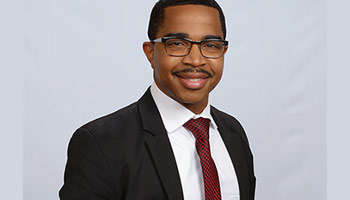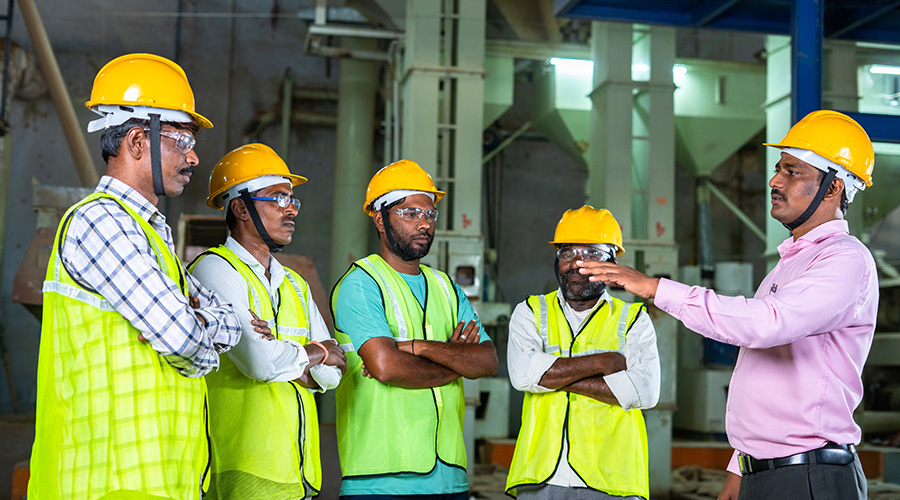In the Facility Management Game, Teamwork Wins the Day
A successful facility management department is one that has an "us and we" mentality, as opposed to "I and me."
Just like any other team, a facilities team is only as strong as its weakest link. And if you’re on a team, that means all involvement must be conducive to what the team philosophy is. When there’s an individual only worried about themselves and not the rest of the team, that team member will provide nothing but headaches to combat during the time they’re on that team. If they’re about only themselves, it doesn’t matter how great they are at their tasks, the team will suffer. Being a part of a team, no matter how big or small, it should be immediately understood that the minute you get brought in to contribute your talents, you’ve now entered a tacit agreement with many other people. That means it’s no longer about you. It’s all about the team.
Everything that’s a part of your duties is a chunk that goes into the team collective, and everyone must play their part by doing what they’re supposed to do. This involves the language used in all forms of communication and how you even conduct yourself as a representative of the team. It’s a mindset not everyone can adopt, but it’s a mindset that needs to be fully accepted.
Understanding fundamentals, the team philosophy, and adopting the vision that has been created and set by the team leader are vital elements to individual and team success. Failure to accept what has been designed as the vision will do nothing but take the team backwards, and thus creating no chance of having forward momentum toward the actual goal or goals that have been set for the team. Taking the time to understand the team culture and the other personalities of the people on the team sets a great foundation to stand firm against the obstacles that inevitably come up. If things go wrong, team doesn’t blame its individual members. There isn’t blame for anyone specific on the team if mistakes were made. Selfish antics and the “I’m going to just blame so and so” mindset should be forbidden, along with having no room for gossip. If anything goes wrong, it’s our fault. If a person makes mistakes that are unfavorable to the operation, it’s not just one person that has to get better. We all have to get better.
This game of team building, isn’t necessarily a game to be won or lost, but it’s a game that must be played. If hired or picked for any kind of team, it’s assumed you already have the goods to do the job. But that’s only a small percentage of the game. Look at your favorite organization, sports team, businesses, etc. Ask yourself about their success over the years, the people that create that success, and see if that answer is along the lines to what the us and we philosophy is. The best teams and organizations work together toward a common goal. The goal is to not always win, but it is to always get better and be more effective in every area.
You may see the word “game,” or hear a coworker say to another coworker that “You just have to learn to play the game.” The meaning of that doesn’t suggest that you create fabricated relationships with people or be fake with your teammates. Even though that’s the immediate assumption for some people to get ahead, that’s just not going to work at all. It may seem so at times, but it will only feel like it’s “right” because you got praise by end users and got your way for five minutes. And to most individuals in many industries, that will most definitely feel like a huge win. However, the 15 minutes of fame for that type of self-glory isn’t worth it. Everyone that goes that route soon understands it’s not the most advantageous path to take — you wind up getting nowhere fast.
A college professor who I’ll never forget, once told our class: “If you want to learn to succeed beyond measure, the first thing that must be done is you have to learn to play the game.” It’s not a profound statement by any means but all the students in the class were intrigued because of the fact that it was so simple, to the point, and powerful if you were able to comprehend and then apply it. That statement made it a bit easier for many of us to see down the correct path in having great success in whatever we were already doing, or what we’d soon choose to do with our lives.
Whether an FM is new on a team or they’re a seasoned veteran with the team, building the relationships is always ongoing. You’re with these people for many hours a day. You must learn to work with them, and learning to work with these different people is just like learning a new game. It crucial to spend the time to learn about your teammates: their habits, their weaknesses, their strengths, likes, dislikes, their thought process, etc. The rules of the game must be thoroughly absorbed, practiced as perfectly as possible, and your skills must be meticulously sharpened to become and remain a top contender.
Charles M. Thomas (cthomas@lacemgt.com) is a Facility Operations Consultant with LACE Management Services. He has 10 years of facility operations management experience working among the research, education, financial, and public relations industries, with skills in operations, strategic planning, project management, and office community relations.
Related Topics:












